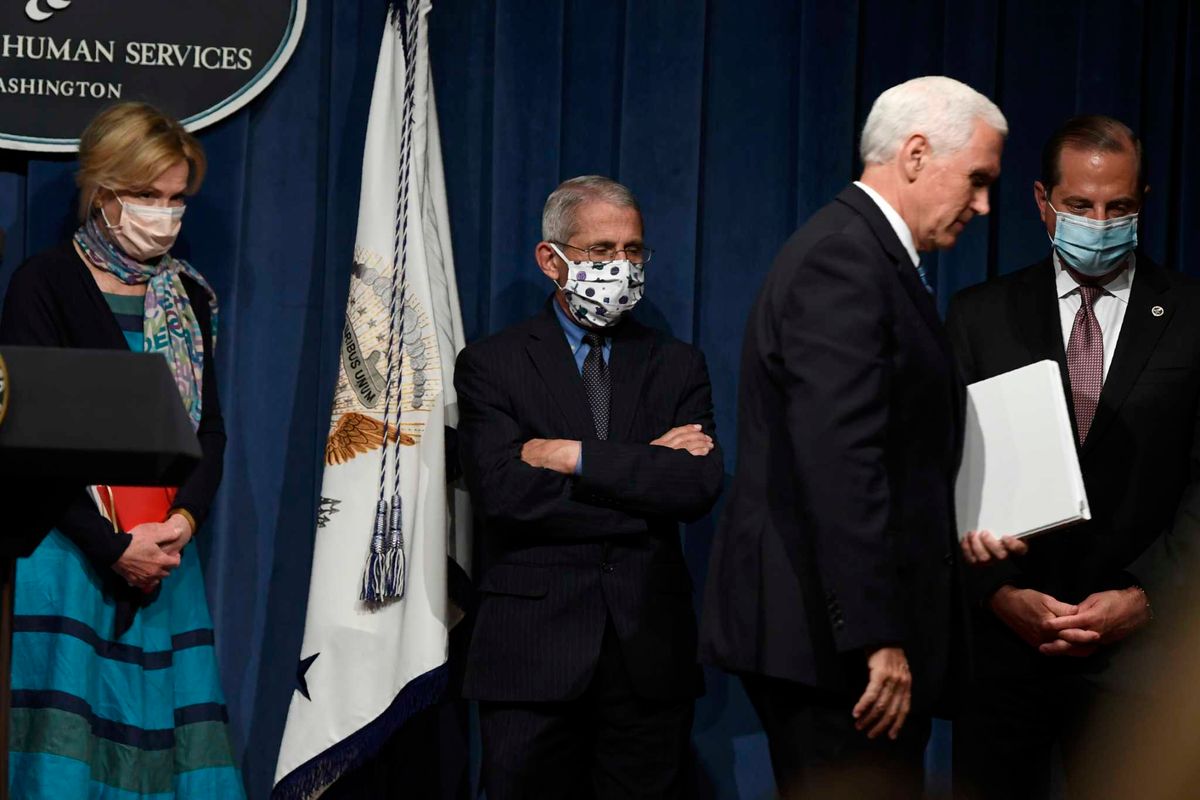Data from COVID-19 hospital cases will now go through HHS, cutting CDC out, says Trump administration

A few minutes every morning is all you need.
Stay up to date on the world's Headlines and Human Stories. It's fun, it's factual, it's fluff-free.
Beginning Wednesday, hospitals will send all COVID-19 patient data to the United States Department of Health and Human Services (HHS), bypassing the Centers for Disease Control and Prevention (CDC), under the Trump administration’s orders.
According to the document, which was posted on the HHS Department website, instead of the CDC, the HHS will now collect and report hospital data such as the number of hospitalized patients and the number of beds and ventilators.
Before Wednesday, hospitals reported this data to the CDC’s National Healthcare Safety Network (NHSN), described by the agency as the nation’s most widely used health care associated infection tracking system.
The CDC, which is based in Atlanta and is an operating division of the HHS in Washington, DC, then tracked the information and made it public.
Officials say that the move will streamline all COVID-19 patient data. This is crucial for the White House coronavirus task force in determining the allocation of medical supplies such as personal protective gear and remdesivir, the first drug proven to be effective in treating the virus.
HHS spokesperson Michael Caputo said that the CDC’s “inadequate” data gathering system necessitated the change. He added that the CDC’s system will be linked with the new HHS centralized system and that the CDC will continue to make the data public but will no longer report it.
“Today, the CDC still provides data from only 85 percent of hospitals; the President’s COVID response requires 100 percent to report,” Caputo said. “Today, the CDC still has at least a week lag in reporting hospital data; America requires it in real time.”
“The new, faster and complete data system is what our nation needs to defeat the coronavirus, and the CDC, an operating division of HHS, will certainly participate in this streamlined all-of-government response,” Caputo added. “They will simply no longer control it.”
The move came after a conference call several weeks ago between White House coronavirus response coordinator Dr. Deborah Birx and hospital executives. Dr. Birx expressed concern that hospitals were not adequately reporting data and in response formed a working group of government and hospital officials to construct a new plan of streamlining national patient data.
Dr. Janis Orlowski, who serves on the group and attended its multiple meetings, said that although hospitals were diligently trying to report up-to-date information, they were burdened by data requests from multiple agencies.
“Because [hospitals] were reporting into agencies, and using different portals for the data to be submitted, and besides the portals, they could report to the state, as you can imagine, this became a data issue of how do you coordinate all this. So our job became see, can we simplify the reporting process,” Orlowski said.
However, health experts have raised fears that the move could lead to political interference and a lack of transparency by the HHS in reporting data.
CDC Acting Director Richard Bessner told CNN, “Given how political the response has been to date, it’s a step backwards to have these data going directly to HHS in Washington. It’s another example of CDC being sidelined. Not only should the data be coming to CDC, but CDC should be talking to the public through the media every day."
Bessner added, “One of the nice things about CDC being in Atlanta — being away from Washington — is that we’re able to avoid a lot of political pressure that you get in when you’re in DC. What I worry with the data going directly to HHS is that it could be further politicized, and that’s the last thing you want."
Bessner agreed with Caputo that CDC’s data tracking system needs modernization but he added, “the answer to this isn’t bypassing CDC; it’s working to ensure that the flow is going faster, making sure that they’re getting the right data."
Dr. Nicole Lurie, who served as assistant secretary for preparedness and response under former President Barack Obama also criticized the centralization of data to the HHS.
“Centralizing control of all data under the umbrella of an inherently political apparatus is dangerous and breeds distrust. It appears to cut off the ability of agencies like C.D.C. to do its basic job.”
Dr. Bill Winkenwerder, the assistant secretary of defense for health affairs from 2001 to 2007 under President George W. Bush, told CNBC that the move is not necessarily political, adding that the US needs to improve its data systems in general.
“The key point is the HHS and the White House need this data quickly to coordinate a whole host of decisions that are not made at the CDC level. The one-week lag that was described — that is a long time. Every day counts, so I can understand why they need and want that information.”
“Hopefully once this Covid pandemic is at least more under control or once we get a vaccine, we absolutely need to invest more in updating our data aggregation systems.” Winkenwerder added.
“Whatever they can do to fix the data in the interim is great. Long term, it needs to be improved in general.”
Have a tip or story? Get in touch with our reporters at tips@themilsource.com




Comments ()